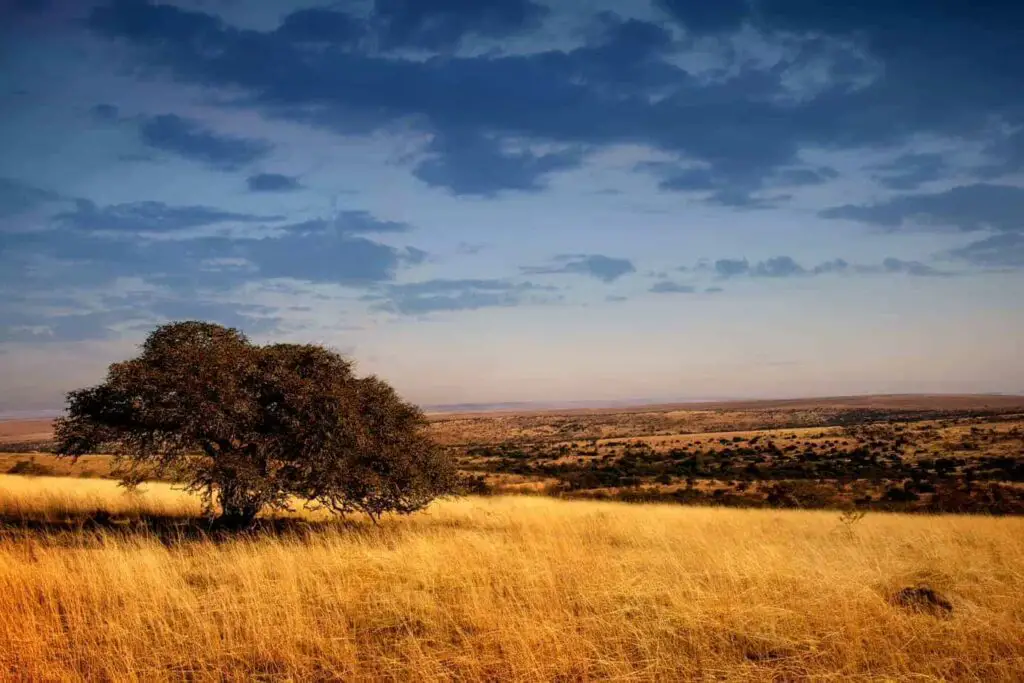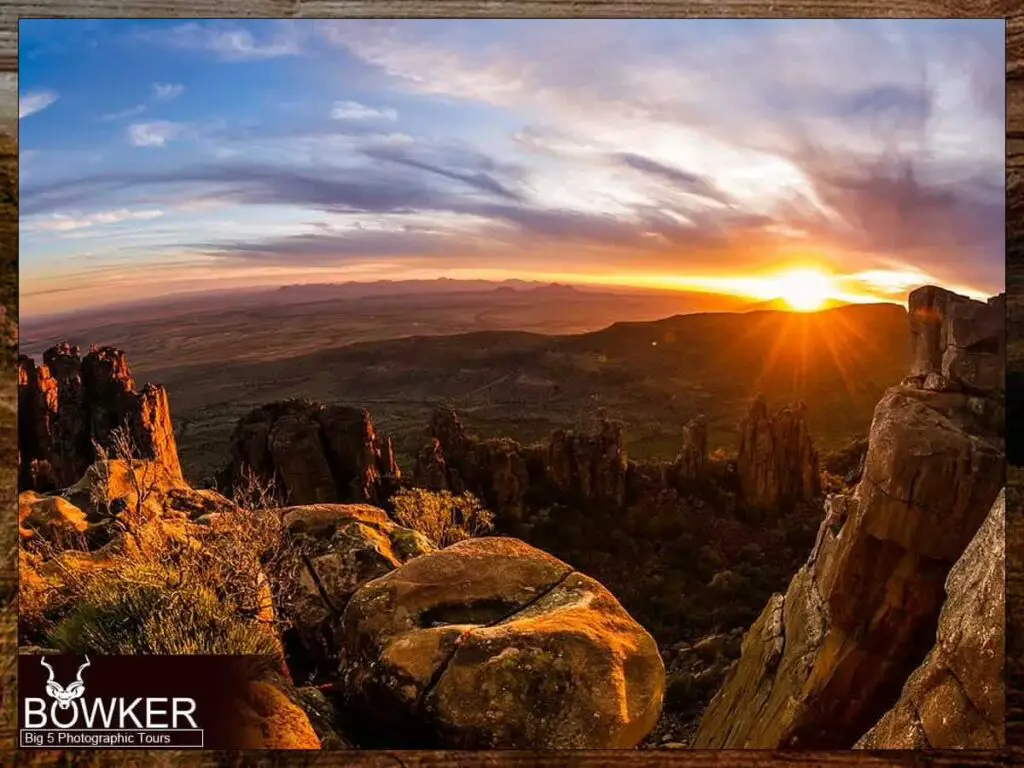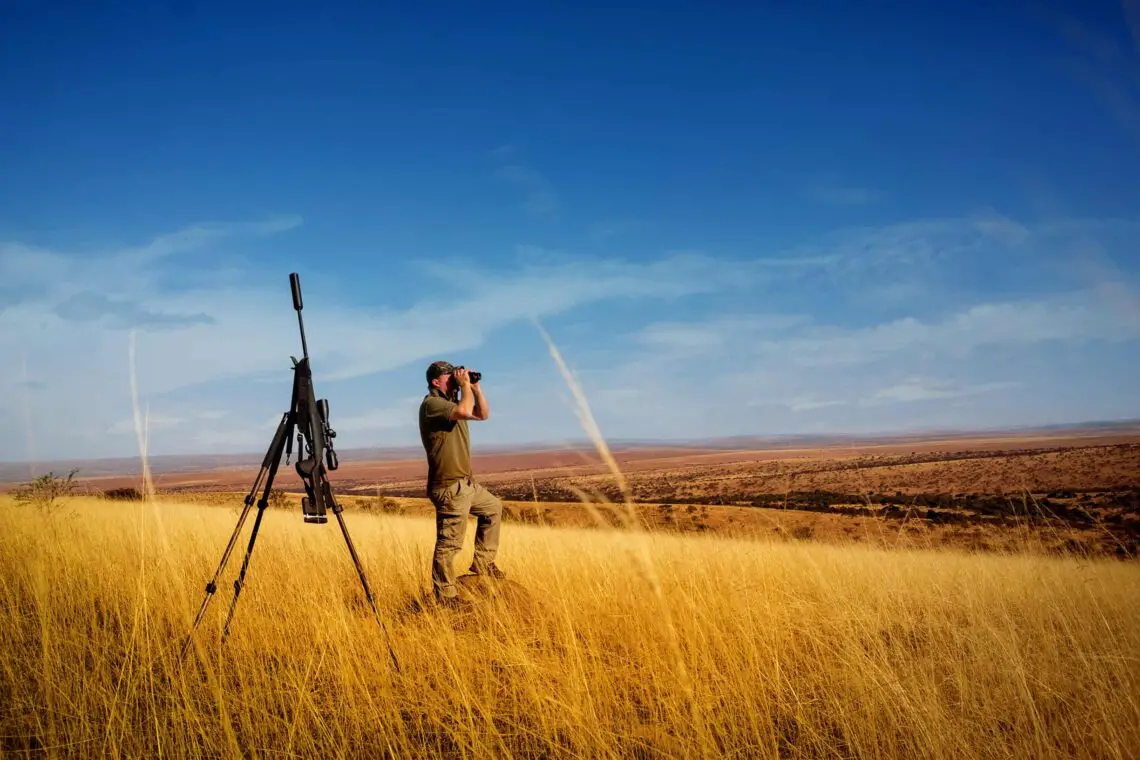This article was sponsored by Nick Boker Hunting.
Growing up, I remember watching TV shows where hunters were traveling the globe, hunting animals I had never even heard of before, all while experiencing the beauty of a new country.
Whether these famous hunters were toughing it across the wild plains of Africa or through the mountainous terrain of southern Argentina, the thrill of the hunt translated through the screen and forever branded me with a curiosity for these destination hunts
These global hunting adventures take you far beyond the comforts of home, placing you in landscapes where every rustle and bird call is a new experience. The intrigue of hunting trips abroad is as much about the journey into the unknown as it is about the trophy, as each expedition tests your skills and nerve in ways domestic hunts never could.
With that excitement comes its own host of challenges.
- Navigating unfamiliar laws
- New hunting customs
- Communication barriers
- Adapting to environments that can flip from scorching days to frigid nights.
For a beginner considering hunting internationally, preparation is as important as being able to land the perfect shot.
So, from understanding foreign hunting regulations to respecting traditional hunting practices, we’ve decided to break down how to navigate your first international hunt without issue

Legal Considerations
Hunting abroad isn’t as simple as buying a local license and heading into the woods.
Every country and state has its own set of international hunting laws and rules, and the penalties for breaking them can be severe.
Understanding International Hunting Laws
As mentioned, hunting regulations vary drastically from one nation to another.
In some countries, you must be accompanied by a licensed professional guide, while in others, certain species might be off-limits entirely except for special circumstances. An African nation may issue permits for big game only during specific months, while a European country might require passing a shooting proficiency test.
There is a lot to become familiar with, like knowing the bag limits, approved weapons or calibers, and even the quota systems. That is why it is so important to research local law and secure all required documentation.
Cultural Sensitivities
The thrill of the hunt may be universal, but the way it’s perceived and practiced is anything but. Cultural practices surrounding hunting run deep, often rooted in tradition, culture, and necessity.
Respecting Local Traditions and Practices
Aligning with local cultural hunting norms means everything from greeting elders to participating in a post-hunt ceremony.
In some cultures, sharing a portion of your harvest with the community is more normal than you might think.
Treat these moments with respect and listen when locals talk about their relationship with wildlife. This will help you build trust and camaraderie among those you are hunting with, turning a simple trip into a deeper cultural exchange.
Species and Seasons
One of the greatest joys of international hunting is the chance to pursue game you’ve only read about, but with great opportunity comes the need for careful and proper timing.
Target Game and Hunting Seasons
Before setting your sights on that dream species, it’s always a good idea to familiarize yourself with the game calendars of your destination.
Every country and region has a wildlife authority that publishes hunting season dates. For example, Argentina’s stags roar in March, while New Zealand’s fall hunting peaks in April.
These timelines work to support wildlife management and conservation across the country. Considering these dates, the best trips align with species availability and the most manageable weather. Matching your travel dates to peak seasons tilts the odds in your favor and shows respect for the natural cycles that sustain the game.

Logistics and Planning
Taking yourself on a hunt halfway around the world, as you might imagine, requires much more than X’s on a map and a plane ticket.
Travel planning, gear selection, and preparation can make or break your trip.
Organizing Your Hunting Trip
Start early, seriously. As soon as you possibly can, it’s a good idea to:
- Secure passports
- Secure visas
- File for firearm permits
- Confirm entry laws for both yourself and your gear.
- Create a checklist of hunting travel essentials
- Travel documents
- Hunting licenses
- Insurance
- Outfitter bookings
- Versatile clothing and terrain-specific gear.
Knowing how you’ll transport and declare your weapons should be a top 3 focus point, as it can put a huge delay in your trip.
You also have to consider and plan for what you will do with your trophy after a successful hunt:
- Shipping
- Caping
- Donating
Know your emergency procedures, too. Proper planning gives you the freedom to focus fully on the hunt.
Role of Hunting Outfitters
For a first-time international hunter, the complexity of going abroad can be overwhelming and a serious undertaking. That is why, in the world of international hunts, hunting outfitters greatly simplify the process and increase your chances of success.

Utilizing Professional Hunting Services
A reputable outfitter can often handle quite a bit of the legwork for you:
- Permits
- Accommodation
- Logistics
- Firearms and ammunition
They also provide important local knowledge that helps you locate and effectively pursue your dream trophy.
They’ll guide you through local terrain, explain customs, and act as a safety blanket as you enjoy the thrill of the hunt. Outfitters also offer rental gear like hearing protection and can help take care of trophy handling.
For beginners, you can look at outfitters as mentors, problem-solvers, and logistical lifelines. Just make sure to do your research and choose wisely, as the right outfitter is a critical investment in any successful and memorable international hunting experience.
Ethical Hunting and Conservation
No matter where you hunt, ethics and conservation must guide every decision. International hunting is a privilege and a responsibility.
Promoting Sustainable Hunting Practices
Ethical hunting means several things:
- Obeying laws
- Taking humane shots
- Respecting quotas.
Only targeting mature animals and avoiding any unethical shortcuts is a must. Many regions use hunting permits to fund conservation and support local communities, so keeping these ideals in mind is super important.
Supporting conservation-minded hunting programs also helps protect both game and habitat. You can donate meat, follow leave-no-trace principles, and hold outfitters to high standards. When done right, international hunting promotes sustainable game management and reinforces your role as a steward of the wild.
So, whether it’s your first red stag hunt in Europe or if you’re embarking on an African hunt to take down a water buffalo, hunting abroad should be about more than the trophy.
It’s about connection to:
- The land
- The culture
- The animal
- The legacy of responsible hunting.
Respect the law, honor tradition, plan carefully, and hunt with integrity, and your first international hunt will be one you remember forever.
This article and its images were written and provided by the great folks at Nick Boker Hunting. Check them out today if you are interested in booking an African hunting safari of your own!

